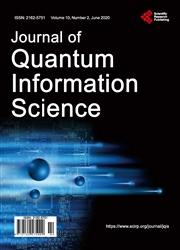Practical Meta-Reinforcement Learning of Evolutionary Strategy with Quantum Neural Networks for Stock Trading
引用次数: 1
Abstract
We show the practicality of two existing meta-learning algorithms Model- Agnostic Meta-Learning and Fast Context Adaptation Via Meta-learning using an evolutionary strategy for parameter optimization, as well as propose two novel quantum adaptations of those algorithms using continuous quantum neural networks, for learning to trade portfolios of stocks on the stock market. The goal of meta-learning is to train a model on a variety of tasks, such that it can solve new learning tasks using only a small number of training samples. In our classical approach, we trained our meta-learning models on a variety of portfolios that contained 5 randomly sampled Consumer Cyclical stocks from a pool of 60. In our quantum approach, we trained our quantum meta-learning models on a simulated quantum computer with portfolios containing 2 randomly sampled Consumer Cyclical stocks. Our findings suggest that both classical models could learn a new portfolio with 0.01% of the number of training samples to learn the original portfolios and can achieve a comparable performance within 0.1% Return on Investment of the Buy and Hold strategy. We also show that our much smaller quantum meta-learned models with only 60 model parameters and 25 training epochs have a similar learning pattern to our much larger classical meta-learned models that have over 250,000 model parameters and 2500 training epochs. Given these findings, we also discuss the benefits of scaling up our experiments from a simulated quantum computer to a real quantum computer. To the best of our knowledge, we are the first to apply the ideas of both classical meta-learning as well as quantum meta-learning to enhance stock trading.基于量子神经网络的股票交易进化策略的元强化学习
我们展示了两种现有元学习算法Model的实用性——不可知元学习和通过元学习使用进化策略进行参数优化的快速上下文自适应,并使用连续量子神经网络对这些算法提出了两种新的量子自适应,用于学习在股市上交易股票组合。元学习的目标是在各种任务上训练模型,这样它就可以只使用少量的训练样本来解决新的学习任务。在我们的经典方法中,我们在各种投资组合上训练了我们的元学习模型,这些投资组合包含60只随机抽样的消费周期性股票。在我们的量子方法中,我们在模拟量子计算机上训练了我们的量子元学习模型,该计算机的投资组合包含2只随机抽样的消费周期性股票。我们的研究结果表明,两个经典模型都可以用0.01%的训练样本数量来学习新的投资组合,以学习原始投资组合,并且可以在买入和持有策略的0.1%投资回报率内实现可比的性能。我们还表明,我们的量子元学习模型只有60个模型参数和25个训练时期,其学习模式与我们的经典元学习模型相似,后者有超过250000个模型参数,2500个训练时期。鉴于这些发现,我们还讨论了将实验从模拟量子计算机扩展到真实量子计算机的好处。据我们所知,我们是第一个将经典元学习和量子元学习的思想应用于股票交易的人。
本文章由计算机程序翻译,如有差异,请以英文原文为准。
求助全文
约1分钟内获得全文
求助全文

 求助内容:
求助内容: 应助结果提醒方式:
应助结果提醒方式:


